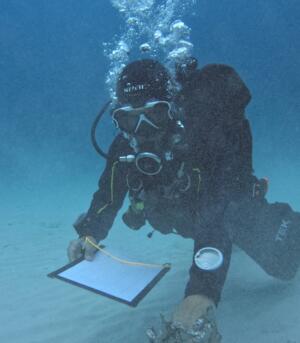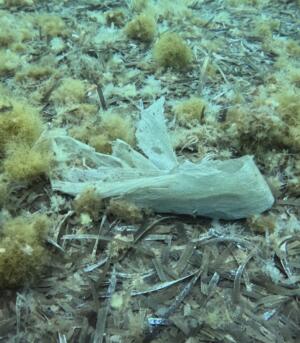Updates on our Study of plastic waste on seabed in the Balearics
Menorca Preservation takes part in groundbreaking Study on Marine Waste in the Seabed of the Balearic Sea


The project, carried out in collaboration with Mallorca Preservation and IbizaPreservation, enters its second phase with 20 survey sites analysed
Menorca Preservation, Mallorca Preservation and IbizaPreservation are jointly conducting a pioneering project focused on identifying and analysing litter found on the seabed in the Balearic Islands. The study forms part of the shared marine conservation initiative Tejiendo Futuro: An Alliance for the Preservation of the Balearics, and is supported scientifically by the Spanish Institute of Oceanography (IEO).
During the first phase, underwater sampling was carried out at 20 stations across the Balearics, including 7 around Menorca, thanks to the collaboration of several local diving centres. The sites were selected to represent a variety of environments: marine reserves with urban influence, pristine natural areas, and highly impacted urban coastal zones. In addition, sampling stations covered all four cardinal points — north, south, east and west — to provide a representative picture of the sublittoral zone, which refers to the coastal seabed that remains permanently underwater, from the low tide line to the depth where marine algae no longer grow.
Mallorca Preservation carried out 7 samplings and IbizaPreservation conducted 6 more around Ibiza and Formentera, all using a shared methodology. The aim of the project is to collect consistent, comparable data to assess the distribution and types of marine litter found in shallow waters, thereby deepening our understanding of human impact on coastal ecosystems.
“On the island, we’ve made significant progress in analysing plastic pollution on beaches, but we still lack data on the quantity of litter in the submerged areas closest to shore. This study allows us to complete that picture by including a key ecological zone, with sampling points located in Posidonia oceanica and Cymodocea nodosa seagrass meadows,” explains Marta Pérez, technical coordinator of the study in Menorca and coordinator of the Plastic Free Menorca Alliance.
Each participating dive centre conducted two dives per station, following a standardised protocol validated by the IEO. “The goal is to collect scientific data and images to produce a technical report that can guide possible action to reduce plastic pollution, while also helping raise awareness about this serious environmental issue,” says Marta Pérez López.
In Menorca, the collaborating dive centres were Binibeca Diving (Es Grau and Punta Prima), Blue Islands Diving (Macarella and Cala Galdana), and Diving Menorca (Cavalleria, Arenal d’en Castell and Algaiarens).
Each station comprised three 40-metre transects, laid perpendicular to the shoreline. Two divers per transect collected and recorded litter found within a 2-metre radius on either side. Each transect thus covered 160 m², amounting to nearly 500 m² surveyed per station.
The most commonly found litter included fragments of film plastics (such as bag remnants and lightweight plastics) and rigid plastics. Among the more unusual items discovered were a 2008 Spanish national football team jersey, a mobile phone, and a window blind.
The organisations in Menorca, Mallorca, Ibiza and Formentera emphasise that this joint effort not only removes litter from the marine environment but also helps “foster a more accurate understanding of human impact on coastal ecosystems, encouraging public involvement through participatory science.”
Tejiendo Futuro: An Alliance for the Preservation of the Balearics is a joint initiative by Menorca Preservation, IbizaPreservation and Mallorca Preservation, addressing plastic pollution in the Balearic Islands through three main lines of action: scientific research, promotion of the circular economy, and public awareness. The year-long project is funded by Depeche Mode and Swiss watch brand Hublot, with funds channelled through the Conservation Collective – the global network of foundations to which all three organisations belong.